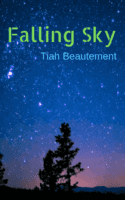In English, Venus is known as the Morning Star and the Evening Star, but it’s actually a planet. It is one of the brightest lights in the sky.
We Xhosa people, however, have given Venus four names. There’s iKhwezi Lokusa, meaning ‘one that shines the brightest at dawn’ which is self-explanatory. Then there’s iKhwezi Lesibini, which is when you can spot the planet during the day, despite the bright sun. uCelizapholo, meaning ‘asking for milk’ can be seen at twilight, a popular time to milk cows. Finally, uMadigngeni, means ‘dating star’, although from what I’ve overheard my brothers doing in the bushes, that goes well beyond ‘dating’. But my brothers tell me, “Mind your own business.”
When I think about this, our beautiful planet-star, I realise I do look up a lot. I look for her, that gaseous orb which is said to appear yellowish white through a telescope, and reddish-brown if you could ever reach her surface alive. I find her during the day. I find her at night when hanging laundry. I find her in the morning, as I bring back the horse from the arena, to be untacked.
But I hardly have a chance to look up in the early morning hours, before the flood lights are on. They obscure the stars, smoothing the sky into a featureless black. To see the meteor shower would mean rising well before 4:30am, when it is still dark-dark.
This morning though, I do it. I creep out into the chill, closing the door softly so it will not wake Mama, Tata, or Basani. (He is still living here, doing his degree through Unisa, and the big house is helping pay for it as a ‘groom’s bonus’.)
I did not bring a torch, not wanting to wreck my ‘night vision’ that Mrs Haffajee says will allow me to watch the meteors best. Outside there was a soft rustle from one of the stalls, a slight snore from another, a fart, and in the distance, near the big house, a dog barked. I picked my way down the path, the damp sand sighing under my footsteps and concluding with a muffled crunch.
I reached the smallest lunging ring, the one used for pre-school children who are learning to ride on tiny ponies. I sat down on the damp grass by its white-white-white fence and looked up.
Above me, the sky was littered with stars and had texture like eerie, faint brush strokes of luminous dust.
As I leaned my head back against one of those white-white-white fence posts, I softly began to count … “One … two … three … four …”
There they were, one streak, then another, and another. One even seemed to pop, like God’s own mini-fireworks show. Glorious, and beautiful!
I imagined angels putting on a circus for the people living below who have to toil in the night: policing darkened streets, taking a smoke break during a hospital shift, minding the refinery while the day workers sleep, parents stepping outside with a teething baby so their partner can rest. There this was, this glorious show, for all the people who will be too tired to enjoy the beauty daylight brings.
Burning crept into my lungs, my diaphragm contracted and my mouth popped open, sucking air sucked deep inside. I’d forgotten to breathe!
“Amazing, isn’t?”
The voice was soft, gentle, but I leapt up like I was trying to catch the stars.
“Didn’t mean to scare you,” the voice said.
“Musa?”
***
Tell us: Do you enjoying looking at the sky at night? If you do, what is your favourite thing see?


